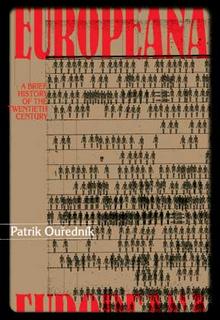
Late yesterday I found this message in my email inbox regarding l'affair Fence (see post below). It came from David Park, a professor of communications at Lake Forest whose mighty brain throbs with the very juices of genius (Park is pictured here enjoying S'mores in my dining room, as is his wont). Says Park:
The whole thing is fascinating. I should do a study of how journal/mag covers signify intellectual content. If your initial argument were taken to its fullest extent, we might see the Atlantic's next issue feature a cover with a porn star.... I don't think your foes are likely to come up with any solid philosophy of the magazine cover that will tell us why the front of a poetry journal should look like the front of a poetry journal.
Dave's up on his Habermasian public sphere theory, so I pestered him for a while via late-night email and, in the end, arrived at the following conclusion: many of the reservations literary types have about the cover come out of an affront to their inherited assumption that intellectual journals are public sphere stuff, not commodities in the market.
You know the classical public sphere model, as articulated by Habermas, right? The ideal of the public sphere is one in which there's a place where we all communicate as equals, where the status of our opinions comes from the merit of our arguments, and where we're removed from concerns of commerce or hierarchical authority. Intellectual journals often have an aura of this ideal. "My disinterested thoughts are here communicated to you, my fellow discussant, for your consideration and possible reply," sayeth the intellectual journal, sotto voce, on every page, "consider these ideas, and talk back, oh reasonable and capable reader." We like to feel, when we grab a literary journal from the rack where it is shelved between Art in America and Conde Naste Traveller, that we're part of a conversation, that we're not so much consumers as we are discussants, members of the public sphere.
When Rebecca Wolff put the topless model Quinne on the cover of Fence to get some sales action going, she committed a sin against these cherished assumptions. She reminded us that, whether we're members of a (real or hypothetical) public sphere or not, we're also part of a market. People out there on the other side of the editorial office door see us not only as subjects of the public sphere, but as consumers. And so she's suffered the fate of most people who bring unwelcome knowledge, and been chided for her actions.
I'm not quite willing to ditch the idea that there really are elements of the public sphere in the little world of literary magazines, though Dave seems to be, sort of. Here's his take:
It's an old question: is there such a thing as disinterested art/ideas/experience/anything? My answer: no, not ever. The more it matters to you, the more interested you are. Tautology ahoy! But still. The attempt to experience art/ideas/experience/anything as disinterested (even if it is accepted that interest is always in there) is what's in play here, and that's much more interesting. So, art and ideas aren't disinterested, and any attempt to experience them as disinterested is doomed to involve a great degree of misrecognition. In some different world, that insight might apply to only a portion of art/ideas. Instead, it applies to almost all that we could call the 'dominant discourse' in art and ideas in contemporary Western society. The presumption that we all give up our interests as we enter the game is a major part of what defines the systems of art/ideas. This is upset by what you call 'catchy packaging,' and what almost anyone else would call a cute topless girl.... I agree that it's a good way to sell magazines and journals, and it's good to be comfortable about selling journals, especially when those journals have reasonably good literature in them. Also, it's good to see someone take on the pompous asceticism common to the world of journals.
So: public sphere or no public sphere, Dave Park's behind the new issue of Fence. Maybe he'll even run out to Barnes and Noble to buy a copy. He'd better move fast, though: I hear they're selling quicker than usual.


